Chemistry for Physical Science I
Syllabus
UNIT-I
Chemical Bonding and Nuclear Chemistry
Chemical Bonding: Molecular Orbital Theory-bonding, anti – bonding
And non-bonding orbitals. Molecular orbital diagrams for Hydrogen,
Helium, Nitrogen; discussion of bond order and magnetic properties.
Nuclear Chemistry: Fundamental particles – Isotopes, Isobars,
Isotones and Isomers-Differences between chemical reactions and
Nuclear reactions-group displacement law. Nuclear binding energyMass defect-calculations. Nuclear fission and nuclear fusiondifferences–Stellar energy. Applications of radioisotopes–carbon
dating, rock dating and medicinal applications.
Unit-II
Industrial Chemistry
Fuels: Fuel gases: Natural gas, water gas, semi water gas, carbureted
Water gas, producer gas, CNG, LPG and oil gas (manufacturing
Details not required). Silicones: Synthesis, properties and uses of
silicones.
Fertilizers: Urea, ammonium sulphate, potassium nitrate, NPK
fertilizer, superphosphate, triple super phosphate.
UNIT-III
Fundamental Concepts in Organic Chemistry
Hybridization: Orbital overlap, hybridization and geometry ofCH4,
C2H4, C2H2 and C6H6. Electronic effects: Inductive effect and
consequences on Ka and Kb of organic acids and bases, electromeric,
mesomeric, hyper conjugation and steric-examples.
Reaction mechanisms: Types of reactions–aromaticity (Huckel’srule)
– aromatic electrophilic substitution; nitration, halogenation, FriedelCraft’salkylationandacylation.Heterocycliccompounds:Preparation,propertie
sofpyrroleandpyridine.
UNIT-IV
Thermodynamics and Phase Equilibria
Thermodynamics: Types of systems, reversible and irreversible
processes, isothermal and adiabatic processes and spontaneous
processes. Statements of first law and second law of thermodynamics.
Carnot’s cycle and efficiency of heat engine. Entropy and its
significance. Free energy change and its importance (noderivation).
Conditions for spontaneity in terms of entropy and Gibbs free energy.
Relation ship between Gibbs free energy and entropy.
Phase Equilibria: Phaserule – definition of termsinit. Applicationsof
Phase rule to water system. Two component system-Reduced phase
Rule and its application to asimple eutectic system (Pb-Ag).
UNIT-V
Analytical Chemistry
Introductiontoqualitativeandquantitativeanalysis.Principlesofvolumetric
analysis.Separationandpurificationtechniques–extraction,distillationand
crystallization.
Chromatography: principle and application of column, paper and thin
Layer chromatography.












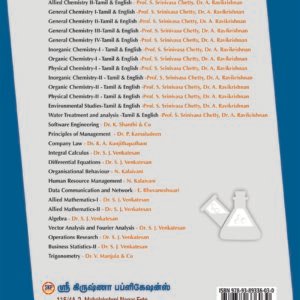
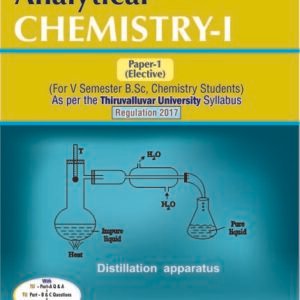
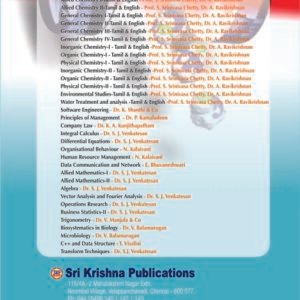
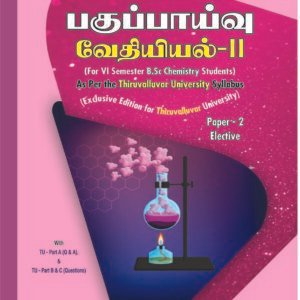
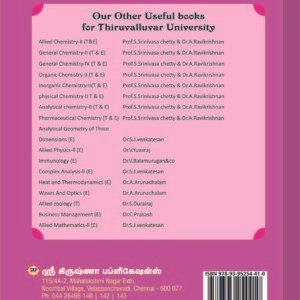
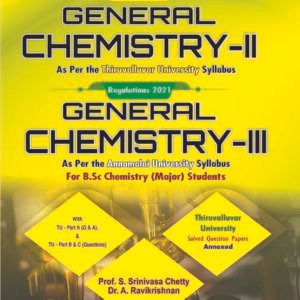
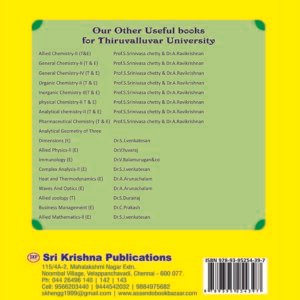
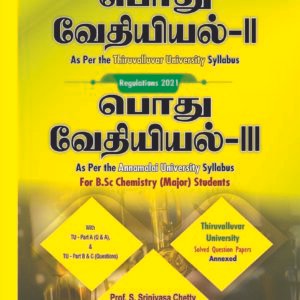

Reviews
There are no reviews yet.